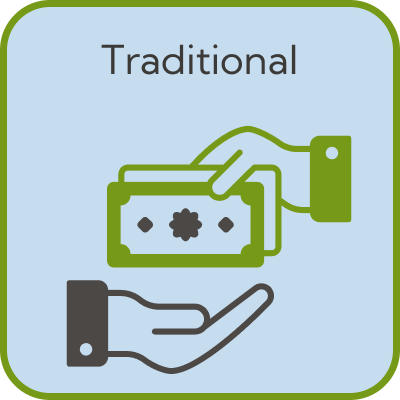Fundraise by participating in BOK - Bristol Orienteering Klub!
BOK - Bristol Orienteering Klub
Orienteering with the Bristol Orienteering Klub (BOK) presents a unique and engaging way to raise funds for your chosen charity.
Orienteering is an outdoor adventure sport that combines navigation with running or walking. Using a detailed map and compass, you navigate between control points marked on the map. The challenge lies in choosing the best route and navigating accurately and quickly. By partnering with BOK, you can organise a sponsored orienteering event for yourself or a group. You could get sponsored per control point visited, per kilometre navigated, or simply for completing a course.
Orienteering stands out as a fantastic fundraising activity because it’s accessible to people of all ages and fitness levels. Courses can be tailored to suit different abilities, ensuring everyone can participate. It's a fun, healthy, and mentally stimulating activity that takes place in beautiful outdoor settings. This offers a refreshing alternative to more traditional fundraising events.
BOK is an excellent partner because they provide established courses, experienced instructors, and all the necessary equipment. Their expertise ensures a safe and enjoyable experience for all participants. Their local knowledge and established presence within the orienteering community can help attract more participants and sponsors to your event.
To organise a successful sponsored orienteering event, start by contacting BOK to discuss your fundraising goals and event logistics. Work with them to select appropriate courses and set a date. Promote your event through social media, local community groups, and your chosen charity’s network. Offer different sponsorship options and consider providing incentives for participants who raise the most money. On the day, ensure participants have clear instructions, safety briefings, and plenty of encouragement.
The Distance Challenge is particularly well-suited for orienteering, as sponsors can pledge based on the total distance you or your team navigate. The Traditional Challenge model also works well, allowing donors to make flat donations in support of your participation. For a team event, consider the Challenge Chain model, where each team nominates another to participate, creating a viral fundraising effect. Incorporate Reward Mechanisms by offering customised maps with donor names or celebratory finish-line photos for significant contributions, keeping participants and sponsors actively engaged.

Sponsivity offers you several ways to raise for BOK - Bristol Orienteering Klub


🏃 Running – A Classic & Inclusive Fundraising Challenge
Running is one of the most popular and effective ways to fundraise, appealing to beginners and seasoned athletes alike. Whether it's a 5K fun run, a half marathon, or an ultra-distance endurance event, running challenges provide a fantastic opportunity for fundraisers to engage their networks and raise money for causes they care about.
Why Running Works for Fundraising:
- Accessible & Scalable: Running events cater to all fitness levels, making it easy for anyone to participate, from casual joggers to competitive runners.
- Personal Challenge: Supporters are more likely to donate when they see fundraisers pushing themselves toward a goal, whether it’s running a first-ever 10K or setting a personal best.
- Strong Community Support: Many local and national running events encourage charity fundraising, providing built-in visibility for fundraisers.
- Social Sharing Potential: Training updates, race-day photos, and post-run celebrations make running challenges highly shareable on social media, helping fundraisers amplify their reach.
Examples of Running-Based Fundraisers:
- Time Challenge: “Sponsor me to run a 10K in under 50 minutes!”
- Endurance Challenge: “I’m running every day for a month—support me with a per-mile pledge!”
- Themed Runs: Fun runs, color runs, and obstacle races add an extra element of excitement and engagement.
Whether it’s a structured race or a personal distance goal, running challenges offer a fun, healthy, and rewarding way to raise funds while inspiring others to get active!
Set bespoke rewards that suit running
- Personalized race bib with donor names
- Run in donor-selected fancy dress
- Record a slow-motion finish line video
🚶 Walking – An Accessible & Inclusive Fundraising Challenge
Walking is one of the most accessible and inclusive ways to fundraise, making it ideal for participants of all ages and fitness levels. Whether it’s a personal step challenge, a long-distance trek, or a community walking event, walking-based fundraising is a great way to raise money while promoting physical activity and well-being.
Why Walking Works for Fundraising:
- Inclusive & Low-Impact: Walking is suitable for everyone, from young children to seniors, making it perfect for family-friendly and corporate fundraising events.
- Endurance & Achievement: Long-distance walks, such as marathon walks, charity hikes, or multi-day treks, provide a strong personal challenge that attracts donor support.
- Social & Team-Oriented: Walking challenges can be done individually or in groups, making them great for workplace fundraising, school events, or community initiatives.
- Easy to Track & Share: Fundraisers can log their daily steps, distance, or time, sharing progress with supporters through social media and fundraising pages.
Examples of Walking-Based Fundraisers:
- Step Challenge: “I’m walking 10,000 steps every day for a month—sponsor me per step!”
- Distance Challenge: “Support me as I trek 50 miles for charity!”
- Themed Walks: Fancy dress charity walks, night-time city walks, or virtual walking challenges add extra engagement.
Walking challenges offer a fun, healthy, and accessible way to raise funds while encouraging people to stay active and support a great cause!
Set bespoke rewards that suit walking
- Wear donor names on a walking vest
- Display a personalised thank-you sign and on the walk
- Videoed song dedicated to your donation
🧭 Orienteering – A Strategic & Adventurous Fundraising Challenge
Orienteering is a unique fundraising activity that combines navigation, endurance, and problem-solving. Whether it’s a timed race, a team-based challenge, or a long-distance navigation event, orienteering provides an exciting and interactive way to engage participants and supporters alike.
Why Orienteering Works for Fundraising:
- Engaging & Competitive: Orienteering challenges add an element of strategy and skill, making them more exciting for both participants and donors.
- Accessible to All Levels: Events can range from beginner-friendly treasure hunts to advanced, multi-day endurance challenges, appealing to a wide range of fundraisers.
- Team-Based Opportunities: Many orienteering events are designed for teams, making them ideal for corporate fundraising, schools, and community groups.
- Great for Social Sharing: Fundraisers can share progress updates, route maps, and challenge highlights on social media to drive donations.
Examples of Orienteering-Based Fundraisers:
- Navigation Challenge: “Help me raise £500 as I complete a 10K orienteering course in record time!”
- Treasure Hunt Fundraiser: “Support my team as we solve clues and navigate a charity treasure hunt!”
- Expedition-Style Adventure: “I’m taking on a 48-hour wilderness orienteering challenge—every donation supports my cause!”
Orienteering fundraisers bring together strategy, physical endurance, and teamwork, making them an exciting and dynamic way to raise money while exploring the outdoors.
Set bespoke rewards that suit orienteering
- Video call the donor from location X
- Make an additional detour of your choice
💪 Physical Endurance – A Test of Strength & Stamina for Charity
Physical endurance challenges are some of the most demanding and rewarding ways to raise money for charity. These events push fundraisers to their limits, whether through long-distance running, cycling, swimming, or multi-hour challenges, making them highly compelling for donors. The harder the challenge, the more supporters are inspired to give.
Why Physical Endurance Works for Fundraising:
- High Engagement: Donors love to support fundraisers who commit to extreme endurance challenges, seeing their dedication as a strong reason to give.
- Scalable & Inclusive: Endurance events can range from personal step challenges to Ironman triathlons, making them accessible for all fitness levels.
- Long-Term Fundraising Potential: The extended training and preparation period allow fundraisers to build momentum and keep donors engaged.
- Great for Time & Distance Challenges: Fundraisers can challenge themselves to beat a time, achieve a distance, or push beyond their limits for charity.
Examples of Physical Endurance-Based Fundraisers:
- Marathon or Ultra Run: “Help me raise £2,000 as I take on my first 100K ultra-marathon!”
- Long-Distance Cycle Challenge: “I’m cycling 1,000 miles across the UK for charity—sponsor me per mile!”
- Extreme Fitness Challenge: “I’m doing 24 hours of non-stop exercise—every donation pushes me further!”
Physical endurance fundraisers inspire, challenge, and motivate, creating an unforgettable experience for participants and a powerful reason for supporters to donate.
Set bespoke rewards that suit physical endurance
- Playlist pick - any song of your choice repeated 3 times on my playlist!
- Photo eating your chosen race snack (max 50g!)
- 20 press-ups after the finishline
🧠 Mental Challenge – Pushing Limits for a Good Cause
Mental challenges test focus, resilience, and determination, making them a unique and engaging way to fundraise. These challenges often involve problem-solving, endurance under pressure, or personal restrictions, such as memory feats, puzzle marathons, or digital detoxes. Fundraising through mental challenges allows participants to showcase their mental strength and discipline, inspiring supporters to donate.
Why Mental Challenges Work for Fundraising:
- Highly Inclusive: Unlike physical challenges, mental challenges can be attempted by anyone, regardless of fitness level.
- Great for Social Engagement: Challenges like chess marathons, escape room events, or language-learning goals are easy to share and track online.
- Endurance & Dedication: Tasks that test patience and willpower—like 24-hour challenges—demonstrate commitment, motivating donors to give.
- Unique & Entertaining: Creative challenges stand out, making them highly shareable on social media and drawing attention to the cause.
Examples of Mental Challenge-Based Fundraisers:
- Memory Challenge: “I’m memorizing 500 digits of Pi—sponsor me to support dementia research!”
- Endurance Puzzle Challenge: “Help me complete 10,000 Sudoku puzzles in a month for charity!”
- No-Talking or Digital Detox Challenge: “Support my 48-hour silent retreat—every donation helps my cause!”
Mental challenges showcase creativity, discipline, and perseverance, making them a fun and inspiring way to raise money while pushing personal limits.
Set bespoke rewards that suit mental challenge
- Join me in my challenge for 1 day
- Get defeated by me at chess online during the challenge
🧭 Exploration – Fundraising Through Adventure & Discovery
Exploration-based challenges take fundraisers on exciting journeys, whether it’s trekking through remote landscapes, discovering hidden landmarks, or completing a multi-day expedition. These challenges combine adventure, endurance, and curiosity, making them highly engaging for both participants and supporters.
Why Exploration Works for Fundraising:
- Inspires Donations: The sense of adventure and discovery makes exploration challenges compelling and shareable, encouraging more sponsorship.
- Scalable & Flexible: Challenges can range from urban scavenger hunts to long-distance expeditions, making them accessible to all levels.
- Great for Personal & Team Fundraising: Exploratory challenges can be done solo or as part of a group, allowing for corporate team-building fundraisers or solo endurance treks.
- Social Media Appeal: Stunning landscapes, cultural discoveries, and progress updates make for excellent engagement and storytelling.
Examples of Exploration-Based Fundraisers:
- Long-Distance Trek: “I’m hiking across the Scottish Highlands to raise £1,000 for conservation efforts!”
- City Scavenger Hunt: “Join me as I explore 50 historic landmarks in 24 hours for charity!”
- Multi-Day Expedition: “I’m taking on a 10-day solo trek through Patagonia—every donation supports my cause!”
Exploration fundraisers combine adventure with purpose, turning exciting journeys into powerful fundraising campaigns that captivate donors and make a real impact.
Set bespoke rewards that suit exploration
- Create a short storytelling video of the journey
- Pose for a selfie at landmark X
📅 Self-Organised – Fundraising on Your Terms
Self-organised fundraising challenges put you in control, allowing fundraisers to create a challenge that’s unique, personal, and tailored to their passions. Unlike organised events, self-organised challenges offer complete flexibility—whether it’s a solo endurance test, a creative personal challenge, or a community-driven activity.
Why Self-Organised Challenges Work for Fundraising:
- Full Flexibility: Choose the activity, location, and timing that works best for you, making fundraising accessible and achievable.
- Personal & Meaningful: Custom challenges allow fundraisers to connect with their audience by choosing something significant to them.
- Low-Cost & Inclusive: Without the need for event entry fees or logistics, anyone can participate, making it easy to involve family, friends, or colleagues.
- Perfect for Challenge Chain & Wager Models: Self-organised challenges can inspire others to join in, spreading the impact through viral nominations.
Examples of Self-Organised Fundraisers:
- Personal Running Challenge: “I’ll run 5K every day for a month—support my journey!”
- DIY Fitness Marathon: “I’m doing 1,000 push-ups in a day—every donation pushes me further!”
- Creative Challenge: “I’ll cycle across the country dressed as a superhero—help me hit my fundraising goal!”
Self-organised challenges allow fundraisers to turn their creativity, passions, and dedication into real impact, making it a powerful and accessible way to raise money for a cause.
Set bespoke rewards that suit self-organised event
- Rename the challenge in your honour
- Bring home-baked cookies to the finishline